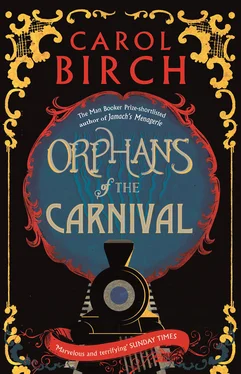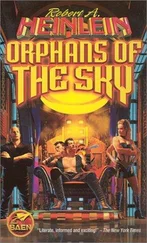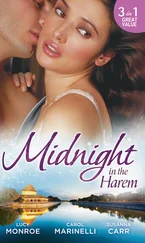Still couldn’t kiss her on the lips though. Not a true all-out kiss on the lips, the real thing. Couldn’t do it as if she was just any woman. But she was strokable as a puppy, sleek as a pony in places. He could do everything with her but kiss her on the lips. Kiss her face, yes. Play with her hair. Find the sensitive spots where the hair grew sparse at the bend of an arm or knee, tickle them softly — in the dark she was a warm shapely thing, a plush doll, easy to slip inside.
‘Theo,’ she said when they were all snuggled up, frosty moonlight sifting in through the pale curtain at the side window, ‘you know at first I didn’t really believe you loved me, but now I do.’
‘Of course I do.’
‘I know you do. You really do, don’t you?’
‘Of course.’
He heard the sound of her smiling.
She fell asleep, and he stayed awake, staring with a half smile and glazed eyes at the shadowy forms of the dressing table and press, the porcelain bowl and jug, all made mysterious in the clear moonlight. Their apartment was on the third floor of what might once have been a palace, the rooms were so high and wide. They’d done well. It was a fine apartment, and a nice part of Vienna. Hermann had found it for them. They had it till July, then it was more touring: Poland, Czechoslovakia — Russia if all went well with the contacts there. There was a fellow in Moscow, a theatrical agent, Volkov.
The walls were thin. One o’clock in the morning and the people next door were still talking, two or three earnest male voices burbling steadily on, breaking out once or twice into bursts of high-pitched laughter. Lately Theo had been troubled by a certain mental tic, an irrational tendency whenever there was sudden laughter to think it was directed at him. Didn’t matter that it was impossible most of the time, didn’t matter that it was a bunch of kids squawking at Punch and Judy oblivious to his existence, still he thought they were laughing at him. Nonsense, of course. Stupid feeling. Since he married her, of course, it was hardly surprising. Who cares? They can think what they want. He turned over in bed, closing his eyes. They’re all the same, he thought, everyone, doesn’t matter who they are, even Hermann, even that Friederike, all thinking it. It’s in their eyes. Do they do it? Do they really do it? My God, the man must be mad!
And if I’m a madman, thought Theo, at least I’m a rich one.
Julia loved Vienna. She had money. She wore beautiful dresses. Why should she not wear beautiful dresses? Why not layer on the jewellery she sent him out to buy. He was good at that sort of thing, could usually pick out something nice. She liked the trips to the theatre in the carriage, the long streets of pale-coloured stone, the high whiteness of the buildings along the boulevard leading to the park, and the people strolling around on a Sunday in their best clothes, she among them, veiled. She liked their apartment, with the shops on the ground floor, a draper’s and a baker’s and a coffeehouse, the grim gloomy stairs that appeared so dark from under the thick veil that without Theo’s arm to guide her she’d never have got home. It grew lonely under the veil. The people she encountered were indistinct. Some seemed like workmen, some were more genteel. Across the landing lived the mother and pregnant wife of an officer of the regular infantry, respectable, friendly ladies who no doubt speculated upon the condition of the strange, veiled little girl who sometimes walked out on the arm of the fashionable dark-haired gentleman with cocky eyebrows. She liked the intricate looping and scrolling on the wrought iron balcony outside their rooms, and the way from there she could see mountains and forest rising far away above the high rooflines. She liked hearing all the different accents of the people in the streets, the sense of a million comings and goings.
Most of all she liked the fact that she was staying in one place for a bit. Everything had been fleeting, changing, faces, places, coming and going, fading in and out. Theo had been the only constant. His round boyish face swam up before her eyes whenever she closed them, and she gave thanks to Saint Jude and whatever it was she got from John Montanee. She never worried that the powers would fade. They’d given and would not take back. There was a semblance of routine now, church on Sunday (she made him take her), the knowledge when she closed her eyes at night that in the morning she would wake to the familiar aromas rising up from the ground floor, coffee and new-baked bread, that she would not have to clear her head and wonder for a moment where she was. There was a peace to life after the excesses of Prague. Hermann Otto came round occasionally and played cards with Theo, but the drinking was not desperate. And now and again, Friederike called in the afternoon, bringing a book from her library for Julia to read. Since she had seen Friederike’s library the night of the dinner, a tiny cosy room with nothing but books, an easy chair, a fireplace and a corner table, she wanted one of her own. It would be peaceful and nice to have a room like that where you could just sit. Not have to do anything but read a book and from time to time look at the fire, gaze into it and dally around in your mind. Somewhere a picture began to form, not only of the room, the fire, the way it would smell and look, the colour on the walls, deep blue, but around it a house, not terribly big, warm, with soft rugs and bowls of flowers. She lived there with Theo, and whenever they had to go away on tour, no matter how far, they always came back to it. And whenever they got back, she would go into her library and just sit and feel happy.
But the time went too fast.
A week before they left, Friederike called in a carriage and they drove out, through the meaner streets and the factories, past the garden fences and nice houses, through the building works and then the meadows, towards the foothills of the Wienerwald. They drank wine in the garden of a vineyard. Friederike knew the owner, who had clearly been pre-warned. His eyes scarcely flickered when Julia raised her veil for the introduction. A polite tall man with a long dog-like face, he shook her hand, smiling politely. She lowered her veil, and he led them to a table in a private part of the garden, bowed and withdrew.
‘You really don’t need to cover up here,’ Friederike said, putting her hand on Julia’s gloved one. ‘You must be sweltering under there.’
‘Not at all. I’m used to it.’
‘There’s really no need.’
Still, it was a public place, it was a warm summery Sunday and people were out and about, so she kept her veil down. Both of them were highly recognisable. Look, people would say as Friederike glided past, it’s the Cricket! Friederike’s picture was everywhere, the critics raved, the public flocked.
‘I know,’ said Julia, ‘but it’s better if I keep it on.’
‘As you wish.’
They were quite high up, and from their table they could see the white town in the distance beyond the trees, the high roofs glinting in the sun. There was a blue jug full of overblown yellow roses on the table. The owner brought them a dish of fat black olives and a carafe of wine so red it was almost black. A flock of pigeons rose up from the nearby woods. ‘I’ll miss you when you go,’ Friederike said, ‘but I’m sure you’ll be back.’
‘I’ll miss you too,’ Julia said, ‘you’re one of the few.’
‘The few?’
‘Yes. People look but they don’t see me. You do.’
‘I think that’s one of the nicest things anyone’s ever said to me,’ said Friederike, turning pink. And yet, thought Julia, she wouldn’t miss her anywhere as near as much as she missed Cato. A woman friend, her own age, things to talk about, books, the stage, wine in the Wienerwald, and yet…
Читать дальше












